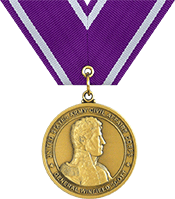2019-20 Civil Affairs Issue Papers: “Integrating Civil Affairs”
- Eunomia Journal

- Mar 26, 2020
- 3 min read
The Association of the United States Army’s Institute of Land Warfare has published the 2019-20 Civil Affairs Issue Papers on “Integrating Civil Affairs.”
A collection of five papers authored by various civil affairs practitioners and partners, the sixth volume, includes a Foreword, Executive Summary and Workshop Report that give detailed coverage of the conversations and progress made at the 2019 Civil Affairs Symposium.
Among its conclusions was that CA can find better integration, beyond established capacities, as a force for influence, collaboration, and competition in a world of convergent threats and challenges for multi-domain and information operations (MDO/IO), whether in MDO/IO or support of interagency stabilization at joint, inter-organizational, and multinational (JIM) levels.
As the Nation’s ”warrior-diplomats,” however, the CA Corps must modernize mission capacities across the competition continuum and full range of military operations to meet and adapt to changing service and Joint requirements as well as strategic imperatives. It must also foster a learning organization both within and beyond military command structures and the CA Corps. This includes allies and JIM partners, as a major CA force development goal. Meanwhile, information management has too long been a major vulnerability and a significant challenge.
In addition to drawing on and reinforcing core competencies and capabilities better known and understood by supported commands at tactical and operational levels, the Corps must also seize opportunities to “harness collective influence” through national strategic initiatives such as the Stabilization Assistance Review and the Global Engagement Center.
It must also help grow an industrial base to improve the CA state of the art through applied sciences and technology. The U.S. Army Civil Affairs and Psychological Operations Command (Airborne) has taken the lead in a seven-year strategy to better integrate CA/PSYOP/IO as well as to grow 38G functional specialist capabilities and other human capital through partnerships with the private sector and non-governmental organizations.
And the Corps must do all these things quickly. As the USACAPOC(A) Commanding General warned: “We must become an adaptable, agile learning organization or we will be replaced by one that is.
A unique, crowdsourced forum for discussion of current topics in civil affairs force development, the Issue Papers form the Association’s capstone to deepen and broaden the formal processes for civil affairs (CA) force development along the lines of policy, doctrine, organization, training, materiel, leadership and education, personnel and facilities (DOTMLPF-P). As such, they facilitate those with the greatest stake in their Regiment’s future – whether active, reserve, special operations and conventional, and Army or Marine – to have a greater say in it.
“This publication is sure to stimulate productive thought and action for the CA Corps throughout the defense community,” —AUSA VP, Lt Gen (ret) Guy C. Swan
“...help improve CA writing skills as a function of intellectual readiness and building human capital” —Association President Col. (Ret.) Joe Kirlin
“This publication is sure to stimulate productive thought and action for the CA Corps throughout the defense community,” noted AUSA Vice President retired Army Lt. Gen. Guy C Swan III in his message to its members. “Readers can explore the role of CA in today’s global environment, examine practical steps being taken to ensure that its relevance is taken seriously and, perhaps most important, improve their understanding of future warfare by studying recommendations for the continued and increasing role of CA across the entire joint force.”
In addition to advancing a more strategic, comprehensive understanding of CA, they also contribute to fostering a learning organization that must go beyond military command structures and the CA Corps, including allies and counterpart civil-military organizations and interorganizational partners. And along with expanding opportunities for CA professionals to think and write about the future of their Corps in outlets such as the new Eunomia Journal, the Issue Papers “help improve CA writing skills as a function of intellectual readiness and building human capital,” as Association President Col. (Ret.) Joe Kirlin wrote in his Foreword.
In addition to the AUSA website, the papers are downloadable on the Association website.
Lots of time to read? The current pandemic has many at home with more time to read and think. The Eunomia team is putting together the Civil Affairs Reading List for 2020. Sign onto the forum to join the discussion and recommend some books.










